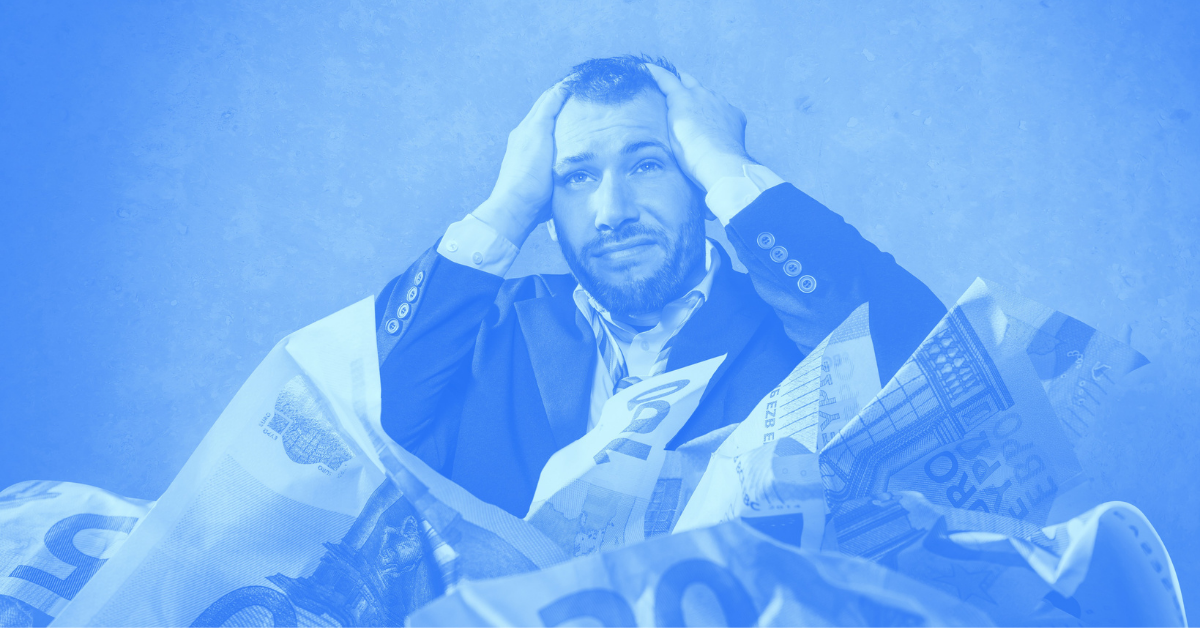These Related Stories
Debt is Stealing From Your Future
Share this
For most Americans, debt has just become part of life. It is almost like we are born with it. At 18 we enter college, sign on for student loans, and there are stands everywhere offering free gifts if we sign up for a credit card. Then we ‘need’ a new car, get a car loan, and before we know it, we are deep into debt. By the time we are looking for a house, we now have to manage a debt payment that is almost the same size as a mortgage. The bottom line is that we need to change our relationship with debt as it is stealing from our future.
The First Step to Getting Out of Debt is to Stop Taking Any More Loans or Credit.
This means immediately locking your credit cards (which can be done in the app for most cards), and not taking any more debt for any reason. Using credit cards to ‘make ends meet’ often results in us blowing our budget. Credit cards result in mindless spending as we don’t feel the ‘pain’ of buying something when we can just swipe or 1 click. The goal is to pay off your debt, so you need to stop making new debt. When debt is no longer an option, you will get creative on how to pay for things and prioritize your spending.
The Second Step is to Get on a Budget.
Budgets are like diets. There are a lot of different budgets, and the one that is ‘best’ is the one that works for you. There is no ‘perfect’ budget. The bottom line of all budgets is that you tell your money what its job is before you even have it. That means at the beginning of the month, every penny has a job. If your money does not have a job, it will find something else to do. With my clients, I use the Money Management System (MMS) for budgeting.
The MMS prioritizes your spending by breaking it into 4 categories: Musts, Shoulds, Coulds, and Won’ts. Musts are all of those things that keep a roof over your head and any minimum payments you are required to pay. After you pay your Musts, you move onto those things you Should spend money on. Shoulds include paying down your debt. That means if you have debt, you will spend all remaining money paying that down, and will not get to Coulds. Coulds are your wants and discretionary spending. When you are getting out of debt, you don’t have extra money for things like eating out, traveling, or a shopping spree on Amazon.
The Third Step is to Pay Off Your Debt.
With a budget in hand, you know what you have to pay down your debt. Start with setting a goal for how much debt you want to pay off, and by when. If your goal is to pay off $6000 in debt this year, then that means you need to put $500 per month into your budget for that goal. Do not try to pay off your debt with ‘what’s leftover’. If you just try to use your leftover money, change, or whatever, you will make little to no progress.
The two most popular methods for paying off your debt are the snowball and avalanche models. I prefer the snowball method as it helps to have small wins over time. In the snowball method, you pay off your lowest debt first. Once that is paid off, you take what you were paying on your first debt and put it towards your second smallest debt. In this way, you keep putting more and more towards your debt (building the snowball). Each time you pay off a debt, celebrate it!
The avalanche method focuses on paying off the debt with the highest interest first. Mathematically, this makes sense. The challenge is that your highest interest rate may be on your largest debt and you may not feel like you are making any progress. The key is to make improvements over time and keep motivated. If you want to follow the math, use the avalanche method but find a way to keep yourself motivated.
Some Tips, FAQs, and Common Assumptions About Debt and Loans:
*Credit card points are worth it – FALSE. It is true that some cards have attractive point systems and gifts, but those are all being paid for by what you (and others) are paying the credit card company. The reason they offer points is that it encourages you to spend more money with them. You are not going to get to financial independence with credit card points, you are going to get there by getting out of debt.
*There is good and bad debt – FALSE. Companies offering loans have marketed the concept of ‘good’ and ‘bad’ debt. Good debt to them is for things like a house or school. They then say that you need to get a credit card to build your FICO score so that you can get ‘good’ debt, so a credit card is important. The truth is that all debt is stealing from your future and costing you money. The people pushing debt are making money off of you, so of course, they think it is ‘good’.
*It is better to lease a new car than to rely on a used car – FALSE. Leasing a car is just a fancy way of saying you are renting a car, with debt. Car dealerships push leases because they are often making more on the lease than on the car sale itself. The ‘low’ monthly payment draws people in and they can justify it as the car is newer and ‘safer’. The facts are that you can drive a Toyota Camry (or similar) for over 100k miles and still be safe. A car is a depreciating asset. That means it goes down in value the longer you have it and the more miles you drive. Cut costs and debt by maintaining and driving your car, not leasing a new one.
*Student loans are the only option – FALSE. When you figure out the cost of the student loan, many college programs do not have a positive return on investment (ROI). Very few private schools have a positive ROI (and then only in certain programs) and State Universities are more likely to be worth it. That means we may need to make different choices in our education. Look at testing out of up to 2 years of school with CLEP exams. If you go to ModernStates.org they will not only prepare you for the exams but also reimburse the cost of the exams. With 2 years free, you can spread out the other 2 years of classes and pay for them while working full time.
*Your house should always have a mortgage – FALSE. Many people assume they will always have a mortgage. Housing prices have gotten so expensive that they are now starting to offer 40-year mortgages. The result is that you end up buying more of a house than you can afford and are stuck with that debt for nearly the rest of your life. Your goal should be for your housing expenses to be less than 25-33% of your TAKE HOME income. You should have a goal of paying off your house as quickly as possible. Even if you can’t get it done quickly, having your house paid off before retiring lowers your ongoing expenses dramatically and helps to ensure a peaceful retirement.
*You need a credit card for purchases – FALSE. When you are setting up your budget, consider doing pre-paid debit cards for your ‘dangerous’ areas. Dangerous areas are the ones you tend to spend too much money on. My dangerous area is Amazon. If Amazon was your area, you can remove all of your credit cards and only add your pre-paid debit card with your budgeted amount (i.e. $200). When you run out of money on the pre-paid card, you need to wait until next month. You don’t always have to use a credit card, you just have to be more creative.
*You need a high FICO score – True and False. A FICO score is a measure of how much debt you have and if you pay on time. It is not a measure of how rich you are or how well you are doing with money. Having a good FICO score can help you when applying for a mortgage and even insurance. To keep your FICO score up, you can put your Netflix subscription on the card, and set it to automatically pay off the card (to a zero balance) each month. You don’t have to keep getting more debt to grow your score.
The bottom line is that we all need a better relationship with debt. My recommendation to most people is to pay off your debt before you invest. That is because you get a risk-free return of 16% on average for paying off a credit card. You are investing by paying off your debt, it is just a different way of looking at it. Once debt is out of your life, all of the payments you were making can go to investing and saving. You will also have better money management habits that will help you throughout your life.

About the Author
Dr Jay Zigmont is a Childfree CERTIFIED FINANCIAL PLANNER™. He holds a PhD in Adult Learning from the University of Connecticut. His focus is on helping people to learn how to manage their money and achieve their dreams. For more about him, check out his website at https://childfreewealth.com
Did you know XYPN advisors provide virtual services? They can work with clients in any state! Find an Advisor.
Share this
- Good Financial Reads (923)
- Financial Education & Resources (892)
- Lifestyle, Family, & Personal Finance (865)
- Market Trends (114)
- Investment Management (109)
- Bookkeeping (55)
- Employee Engagement (32)
- Business Development (31)
- Entrepreneurship (29)
- Financial Advisors (29)
- Client Services (17)
- Journey Makers (17)
- Fee-only advisor (12)
- Technology (8)
Subscribe by email
You May Also Like

Millennials and Money: A Volatile Relationship

Debt is Evil

